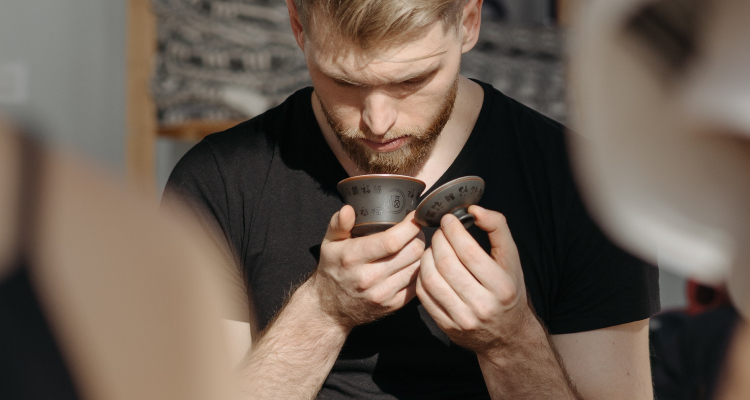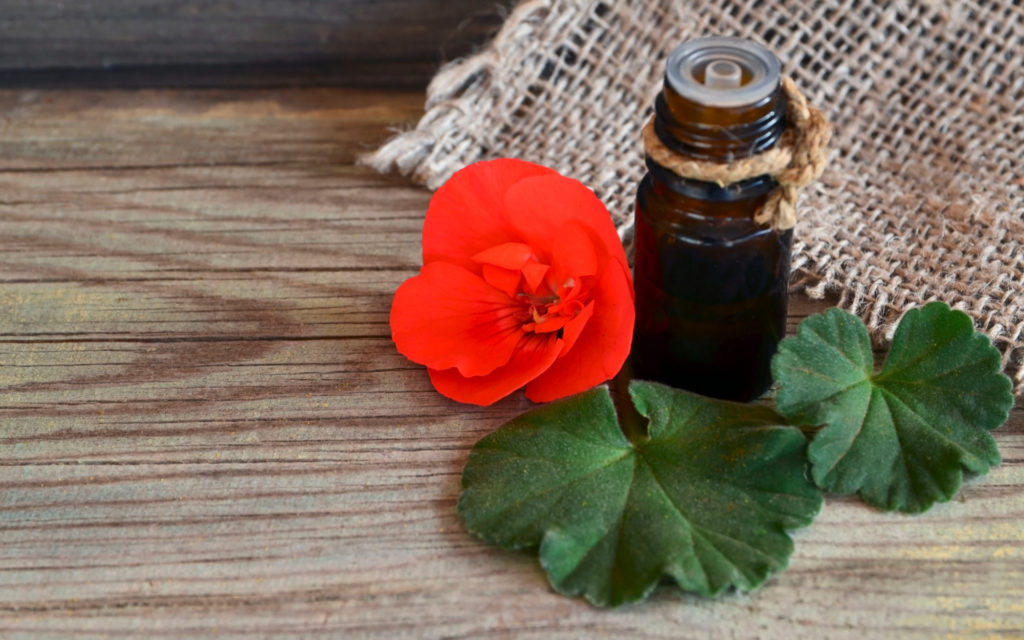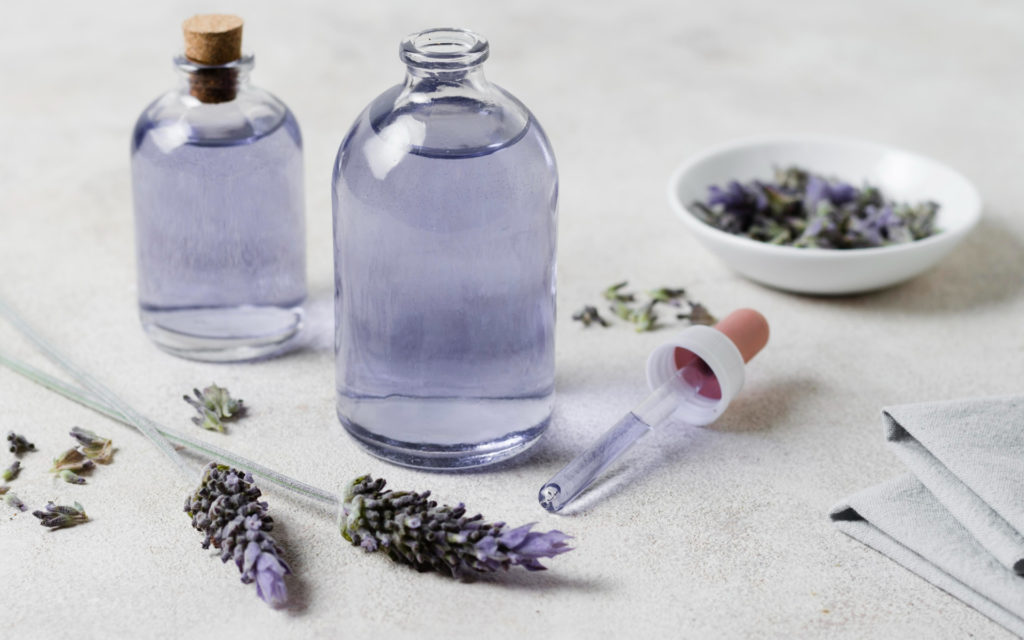Lots of people wear fragrances, deodorants, and other scented products to ensure that they smell nice. However, many don’t fully appreciate just how important scent is for humans.
Beyond superficial pleasantries of smelling nice, you may wonder, “why is smell important?”
Scent plays a crucial role in our lives as it helps us recall people and places, identify different smells, avoid danger, identify spoiled food, and communicate. It also affects our emotions and memories. Smell is so important, in fact, that smell deprivation can lead to depression.
The rest of this comprehensive guide will explore why scent is so important, including the benefits of smell and why it is also essential for our survival.
If you would like to understand the role of scent and how it affects your life, keep reading. You will also discover some invaluable tips on engaging with your sense of smell even better.
Importance of Scent
Did you know that a baby’s sense of smell is fully developed at birth? That’s because smell is an important part of our lives from the minute we are born.
During childhood, scents and emotions are retained as a single memory. A baby’s sense of smell directly impacts their ability to recall memories, people, and emotions.
Consequently, your childhood is when you form the basis for the kind of odors you will find pleasant and those you will dislike–likely for the rest of your life. Naturally, scent continues to be a helpful tool well into adulthood.
Early man did not have the sophisticated tools and equipment we use today. Instead, he relied on his acute sense of smell to survive. This entailed using smell to look for food, track water, avoid danger, communicate, and even identify a suitable mate.
Our reliance on our sense of scent continues to date, though we may be less consciously aware of this fact. For instance, we rely on our sense of smell to identify potentially dangerous situations such as poisonous fumes, a smoky room, or even spoiled food.
Curiously, we often smell in color. What does this mean?
If you dip a strip of paper in scent, someone smelling the piece of paper will associate citrus-flavored mandarin with yellow, orange, and green hues. If smelling grassy vetiver, one would visualize brown and green.
To understand just how encompassing the sense of scent is, let us examine how scent relates to various aspects of our life.
How Scent Affects Memory
Scent plays a significant role in our memories. It dramatically impacts the section of the brain that processes our memories, enabling us to associate certain memories with particular smells.
Experts believe the memories we associate with smells tend to conjure vivid recollections.
Such memories are typically old, and we usually think of them less often. For instance, if you are far away from home, the smell of pasta sauce can remind you of home and your mother’s cooking.
Odors can relate to a place, person, or emotional state. For example, unpleasant aromas can affect our mood, making us feel irritable. They can also warn us of imminent danger by sending pain signals to the brain. This helps protect us from danger.
If the association between the trigger (smell) and the memory is particularly powerful, you may re-experience the feelings or emotions you initially experienced, whether positive or negative.
The ability of scent to trigger memories comes about due to the link between the olfactory system and some sections of the brain, such as the hippocampus and amygdala. These parts regulate emotion and related memories.
According to The Sense of Smell Institute, an individual can recall a smell after a whole year with 65% accuracy. However, when it comes to recalling visual images within a mere 3 months, the accuracy drops to around 50%.
The reason we are able to recall something we have smelled before more than what we have heard, seen, or touched is simple. Up to 75% of all the emotions we generate daily result from smell.
Finally, associating scents with something positive could positively affect your life. For example, relating the scent of lavender with feeling calm and relaxed can bring about this effect every time you smell lavender–or even just imagining yourself doing so.
How Scent Affects Emotion
We have established that our brains often react to specific scents. But did you know that scent can also influence your mood?
Our emotions play a big part in how we behave. They also inform others of our state of mind or how we feel about certain things or situations through our reactions.
The power of smell helps to trigger sense receptors. These receptors then send messages to your brain (specifically to the part that controls your mood). Thus, if you are moody, positive or calming scents can help you adopt a positive mood.
Nowhere else has this phenomenon been leveraged to such a great extent as in the perfume industry.
According to a research study, your mood improves by up to 40% after exposure to pleasant scents. Fragrances can also evoke the following aspects of mood:
- Stimulation
- Irritation
- Stress
- Apathy
- Depression
- Relaxation
- Sensuality
- Happiness enhancement
So, how do perfumers leverage this phenomenon?
Perfumers formulate perfumes with great-smelling scents, helping you feel good and smell great all day. If you want to attract a potential mate, there’s a scent that will help you do just that.
For instance, male fragrances containing wood, leather, musk, and fruity notes are known to be enticing to women, while men adore scents containing vanilla, bergamot, and citrus.
Manufacturers also use fragrance to enhance their products because the better they smell, the more people are likely to buy them. Consequently, you will find products such as soap, detergent, and even food products enhanced with sweet-smelling scents or flavors.
How Scent Affects Love
A particular scent can help bring up a memory (this can be positive or negative). Fragrance is so powerful that it can make you involuntarily recall an experience, no matter how painful it may be.
The scent of a loved one is one example. A mere sniff of a fragrance worn by someone you once loved can take you back to the time the two of you were together, helping you recall happy moments and how the person smelled.
It may also trigger negative feelings you may have for an old partner, or perhaps even grief over a lost family member.
Smelling a beloved fragrance, like one worn during a happy time, can also transport you back to that particular time, making you feel happy all over again. This could be your first date, your wedding, or even the birth of your child.
The perfect scent can stimulate desire. Wearing your signature scent can also make you stand out, entice, or leave a lasting impression. That’s exactly what you’d want when going on a first date or on a special occasion to impress your partner.
How Scent Affects Taste
Your tongue contains taste buds to help you identify different tastes. These include sweet, sour, salty, and bitter tastes. Beyond your taste buds, your sense of smell also helps you identify different tastes and flavors.
Interestingly, your sense of scent has a significant effect on your sense of taste. When you suffer from a cold, and your nasal passages get blocked, your sense of smell also gets affected. As a result, you find it hard to enjoy your favorite foods as they will taste rather bland.
Your sense of smell is significantly more discerning than your taste buds. You can only taste something that’s sour, sweet, bitter, salty, and umami, while the olfactory system is more complex, allowing you to smell 100,000 different odors.
When you’re enjoying your favorite meal, the enticing flavors you encounter are actually the scent of the food. To illustrate this, pinch your nose as you eat ice cream. Rather than tasting the flavor, say strawberry, all you will be able to taste is the sweetness.
The explanation for the above phenomenon is relatively straightforward. The olfactory and taste systems are closely linked with the mouth located right beneath the nose.
While we sniff using our nose, our mouth provides an alternative means of reaching the olfactory epithelium (receptors that convert stimuli to signals for onward transmission to the brain).
And since the nose and mouth are connected via airways, whatever you consume and swallow passes through an expressway directly to the smell receptors.
Hence, whenever you eat or drink, the sensation you experience is not entirely composed of taste. Rather, the more considerable portion results from odor. Thus, approximately 80 percent of the dining experience is olfactory stimuli, not flavor.
How Scent Keeps Us Safe
The loss of your ability to smell (anosmia) can be devastating.
This could happen if you injured your nose or suffered head trauma, causing damage to the plate connecting to the olfactory bulb and hampering the ability to pass signals to the brain. Conditions like Alzheimer’s disease could also cause anosmia.
The loss of your sense of smell could also pose severe repercussions to your safety and health, such as:
- Your life could be in danger. Imagine not being able to smell a gas leak or burning food. This could pose a serious fire hazard, endangering both life and property.
- It can affect the taste of food. If your sense of smell is impaired, you might not be able to taste what you are eating. As a result, you might find yourself adding extra salt to make your food tastier. Unfortunately, if you have diabetes, this could impact your health negatively.
- You could suffer from depression. Problems with your sense of smell could lead to depression. Since the connection to some memories disappears, you stop receiving smell triggers that typically fill the brain with dopamine (a feel-good hormone). Anosmia is also believed to be an early warning sign for Alzheimer’s disease, Parkinson’s, or multiple sclerosis.
- It could deprive you of your olfactory memories. Losing your sense of smell could result in losing your olfactory memories. In other words, you would be unable to recall how certain things smell. This could pose serious risks to your safety if, for instance, you were unable to smell poisonous fumes.
Benefits of Scent
The benefits of smell are many and far-reaching, given that smell forms an integral part of our lives. Below are some of the top benefits of scent:
- Reduces anxiety. Fragrance can be utilized to reduce anxiety. If you are feeling stressed or experiencing distress, try smelling the vanilla scent. The scent is also invaluable in healthcare as it helps minimize claustrophobia in MRI centers and calm down patients awaiting surgery or dental procedures.
- Helps combat insomnia. Heliotropin is known to help with insomnia. The vanilla-like scent helps to relax the brain, thereby improving your sleep. Peppermint, however, has the opposite effect, stimulating your brain and thus keeping you awake. It’s also great for improving attentiveness and clearing the mind.
- Promotes mental and physical health. The use of essential oils is known to promote a sense of calm and well-being, elevate mood, and provide physical and health benefits. For instance, rosemary helps boost productivity and enhances concentration, while fragrance lends your home the perfect ambiance while providing an uplifting effect.
- Helps boost confidence. Dressing up in your smartest outfit can bolster your confidence and make you feel more self-assured and positive. Adding a spritz of your favorite fragrance can do much more. It can alter your mood, transforming how you feel all day.
- Certain smells are energizing. Some scents can help you feel more energized, refreshed, and revitalized, helping you feel more alive. They include citrus, peppermint, eucalyptus, cypress, jasmine, ginger mint, pine, and coffee.
- Smells can be soothing. Some scents can have a soothing effect on your mind and body. As a result, certain herbs and flowers are used to bring about a pleasant and relaxing effect to people suffering from mental health conditions, like depression. Such scents include chamomile, lavender, and jasmine.
- Promotes customer loyalty. Discerning business people know that scent can enhance a consumer’s shopping experience. Consequently, business owners fill their business interiors with simple, pleasant scents like citrus to attract and retain customers. Customers tend to perceive these businesses as more high-end and stay here longer. Scent marketing is also applied in hotel lobbies or even offices.
Here is a quick rundown of some of the common scents and what you can use them for:
| Application | Scent |
| Easing anxiety | Citrus |
| Uplifting the mood | Citrus |
| Soothing stress | Jasmine, geranium, basil, juniper |
| Calming | Lavender, frankincense |
| Invigorating | Rosemary, thyme, peppermint |
| Relaxing | Lavender, basil, citrus, cinnamon, vanilla |
| Treating insomnia | Chamomile |
| Treating colds and poor blood circulation | Eucalyptus |
| Promoting happiness and positivity | Rose |
| Stirring up romantic feelings | Cardamom, ginger, chocolate, licorice |
| Stimulating (enhancing brain and physical activity) | Mint, peppermint |
How To Engage With Your Sense of Smell Better
Now that you understand why scent is essential and its benefits, you might be wondering how to engage with your sense of smell in a better way. This entails doing things that will improve your sense of smell.
The following are useful tips on how to better engage with your sense of smell.
- Improve your sniffing abilities. You can train yourself to be a better sniffer. Get a couple of essential oils, close your eyes, then use small whiffs to sniff each for about 30 seconds. Consider each smell, describe it, and finally internalize it. Without looking at the bottles, try to identify the scents. Soon, you’ll be able to identify the constituents of mixtures having two or more oils.
- Stop smoking. Pollutants irritate the smell receptors, hampering your ability to recognize odors.
- Reset your senses. Buying perfume can be challenging, especially when choosing between several options. After several sniffs, your nose gets desensitized. When this happens, sniff some coffee beans to reset your nose.
- Seek treatment. Has your sense of smell reduced drastically? Sudden or persistent changes in odor perception could indicate a serious condition. It’s advisable to see a doctor for further evaluation.
- Restore your inability to smell. If you suffer partial loss of smell, you can restore it with natural remedies. You can use castor oil (two drops in each nostril, two times a day), drink ginger tea, or perform saline irrigation (washing your nasal cavity with salty water).
On the same note, you might want to protect your sense of smell to ensure it serves you for the longest time. Your sensitivity to smell lessens with age, but you can enhance it by:
- Taking regular sniffs.
- Always wearing a helmet when riding.
- Being conscious of the smells around you whenever you take a walk. Your nose will get stronger the more you use it.
Wrapping Up
Our nose is no less important than our eyes, ears, or tongue. Indeed, our sense of smell is the most powerful of the five human senses and plays a crucial role in our daily lives.
Scent helps us enjoy our favorite flavors, recall stuff, and even attract the opposite sex. It also affects our mood, emotions, and concentration.
Scent also forms an integral part of our daily life. We seek it in the products we use, the food we consume, and the environment we live in. It can also open doors to an amazing career—just ask any perfumer!














